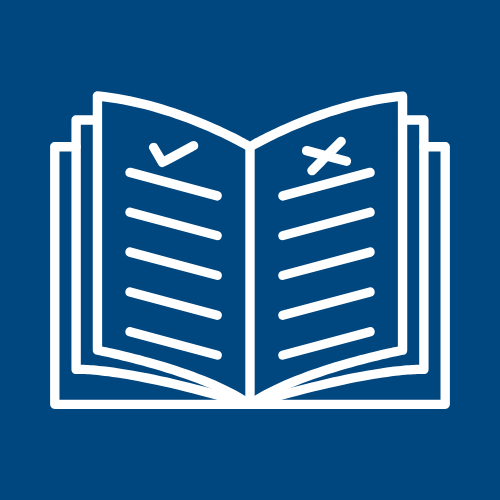
Accessibility Services Documentation
What about documentation?
Students requesting reasonable accommodations must provide current documentation of their disability to the Student Accessibility Services office. The documentation must:
- Be current
- Confirm the existence of a disability
- Support the requested accommodations
- Be written, signed, and dated by a qualified examiner
Individualized Education Plans (IEPs), 504 Plans, or Transition Plans may not be sufficient as disability documentation but can provide helpful history of accommodations and interventions.
Documentation Guidelines
Most students will need a letter from a physician, psychologist, psychiatrist, or other licensed health care professional, on professional letterhead, including:
- Current, clearly stated diagnosis
- Description of assessment for diagnostic criteria
- Relevant history
- Clinical summary
The letter should confirm the need for accommodations based on the impact of the disability and functional limitations in an educational setting. The professional must have expertise in the specific condition, provide their credentials, and sign and date the letter. Letters from health care professionals who are family members will not be accepted. All disability documentation is confidential and kept separate from the student's academic record.
Learning Disabilities
Students with learning disabilities must provide a psychological evaluation report conducted by a qualified professional, such as a licensed clinical or educational psychologist, school psychologist, or neuropsychologist. Documentation from a family member will not be accepted. The evaluation should be current and include:
- Relevant history
- Description of assessment using DSM-IV criteria
- Assessment of aptitude, academic achievement, and information processing (from cognitive and achievement subtests)
- Complete standardized scores (composite and subtest scores)
- Evidence of substantial educational impact (per DSM-IV criteria)
- Clearly stated diagnosis
- Recommendations for accommodations, including effective strategies
This comprehensive evaluation helps determine the present impact of the disability and validate the need for services.
Acceptable and Unacceptable Measures & Tests
Acceptable Measures & Tests
The following measures are acceptable as they are comprehensive adult assessments or screening tools that provide the necessary information for making accommodation decisions:
- The Wechsler Adult Intelligence Scale
- The Woodcock-Johnson Psychoeducational Battery: Tests of Cognitive Abilities
- Woodcock-Johnson Psychoeducational Battery: Tests of Achievement (WJ-ACH)
- Wechsler Individual Achievement Test (WIAT)
Unacceptable Measures & Tests
The following measures are unacceptable because they are not adult assessments or are insufficiently comprehensive to provide the information needed for accommodation decisions:
- The Wechsler Intelligence Scale for Children (WISC)
- The Slosson Intelligence Test
- The Kaufman Brief Intelligence Test
- Wide Range Achievement Test (WRAT-R)
Adapted from AHEAD Best Practices Disability Documentation in Higher Education, 2006, www.ahead.org and endorsed by the KY Association on Higher Education and Disability, 2006.




